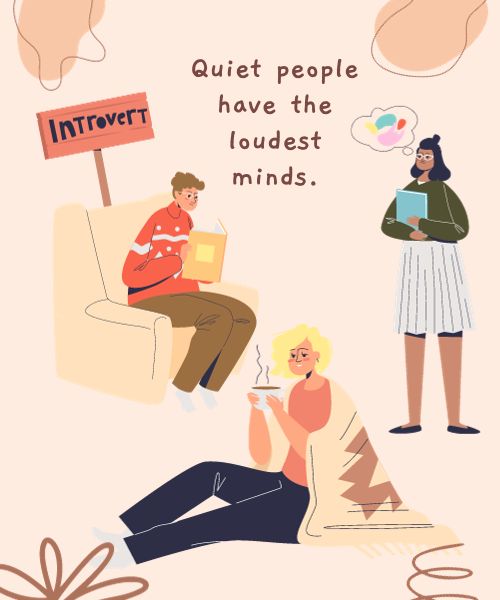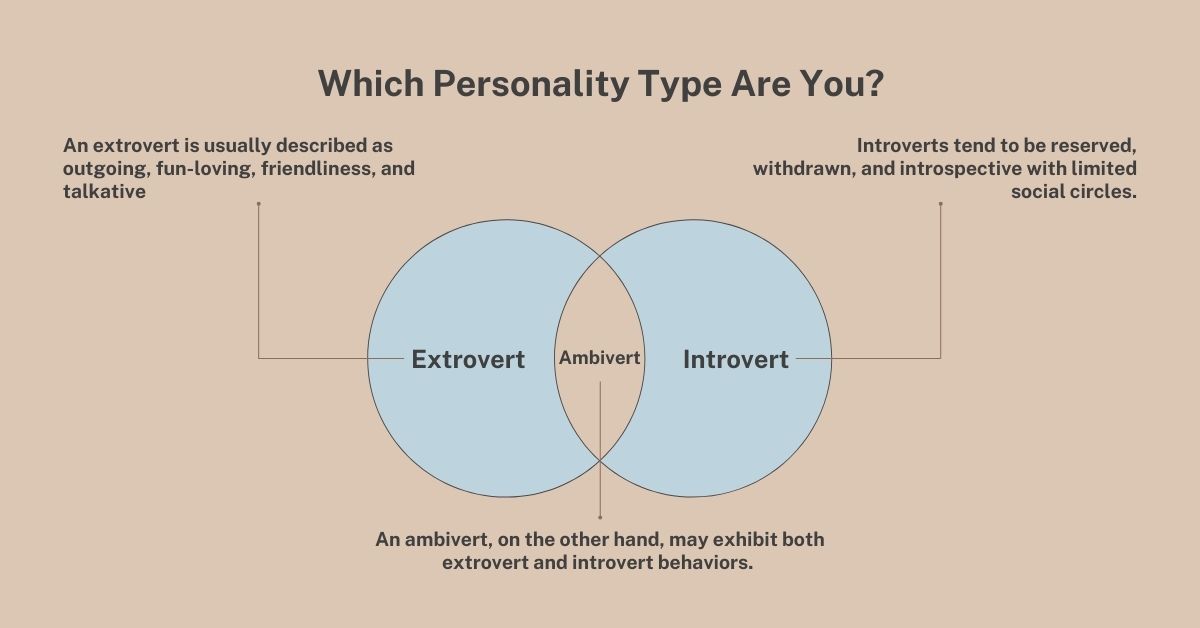So often misunderstood, I think it’s important to be another voice that sheds light on the needs, wants, pros, and cons of introverted individuals, as well as society’s attitudes and misunderstandings about us.
The Introverted Experience
Being an introvert isn’t about being shy or antisocial; it’s about thriving in our own unique way. Introverts, like me, often find solace in quiet moments and prefer deeper, one-on-one connections. Here are some typical needs and wants of introverted individuals:

- Solitude and Reflection: Introverts often crave alone time to recharge our energy. Quiet moments of introspection are essential for our well-being.
- Meaningful Connections: While introverts may not have an extensive circle of friends, we value deep, meaningful relationships and connections.
- Creative Expression: Many introverts have a strong creative side and find artistic expression to be a fulfilling outlet for our emotions and ideas. Writing, art, or other creative pursuits are common outlets.
- Structured Environments: Introverts thrive in organized and structured settings where we can focus on tasks without constant distractions.
- Energy Source: Introverts gain energy from spending time alone or in smaller, quieter settings. Social interactions, especially in large groups, can be draining for us.
- Thoughtful Observers: Introverts often take time to observe our surroundings and process information internally before expressing our thoughts or opinions.
- Deep Conversations: We prefer meaningful, one-on-one or small group conversations over superficial or small talk. We enjoy discussions that explore ideas and emotions deeply.
- Selective Socializing: Introverts tend to be selective about our social engagements. We prioritize quality over quantity when it comes to friendships and social interactions.
- Introverted Extroverts: Some introverts may display extroverted traits in certain situations or with close friends but still need solitude to recharge.
- Empathy and Sensitivity: Many introverts are highly empathetic and sensitive to the emotions of others. We often make great listeners and provide emotional support.
- Prefer Written Communication: Introverts may excel in written communication, such as emails or texts, where we have time to formulate our thoughts.
- Independent Workers: We often work well independently and can be highly self-motivated. Introverts can concentrate deeply on tasks and problem-solving.
- Overstimulation: Introverts can become overwhelmed in noisy or overstimulating environments. We may seek solitude to regain our mental balance.
- Routine and Structure: Having a routine or structured environment can provide a sense of security and comfort for introverts.
- Loyal and Trustworthy: We tend to be loyal friends and reliable in our commitments. Once we form a close bond, it’s likely to be enduring.
- Conflict Avoidance: Introverts may prefer to avoid confrontations and may need time to process and respond to conflicts or disagreements.
- Introverted Leaders: Introverts can be effective leaders, often leading by example, listening to team members, and making well-thought-out decisions.
- Personal Growth: Many introverts embrace self-improvement and personal growth, seeking to harness our strengths and overcome challenges.
Remember that while these characteristics are commonly associated with introverts, everyone is unique, and individual experiences may vary. Introversion is just one aspect of a person’s personality, and it can manifest differently in different individuals.
The Pros and Cons of Being Introverted
Every personality trait comes with its unique set of advantages and challenges. Let’s explore some pros and cons of being introverted:
Some Pros:
Deep Thinkers: Introverts tend to be excellent critical thinkers and problem solvers. Our introspective nature allows for profound insights.
Empathetic Listeners: We are often great listeners and can provide valuable emotional support to friends and loved ones.
Creativity: Introverts often excel in creative endeavors, channeling our inner world into art, writing, or other expressive forms.
Some Cons:
Social Misunderstandings: Society sometimes misinterprets introversion as aloofness or disinterest, leading to misunderstandings.
Overwhelm: Introverts may become overwhelmed in large social gatherings or noisy environments, leading to exhaustion.
Networking Challenges: In extrovert-centric workplaces, networking and self-promotion can be challenging for introverts.
Societal Attitudes and Misunderstandings
Introverts often face societal attitudes and misunderstandings that can make navigating the world a bit more challenging:
The Extrovert Ideal: Society often celebrates extroverted qualities, which can lead to introverts feeling undervalued or pressured to conform.
Misconceptions: Common misconceptions about introversion include associating it with shyness or social anxiety, which aren’t necessarily related.
Communication Styles: Introverts may communicate differently, preferring written communication or one-on-one conversations, which can be misinterpreted as a lack of engagement.
Embracing and Celebrating Introversion
As introverts, we bring our unique strengths to the table. It’s essential to embrace and celebrate our introverted nature:
Self-Acceptance: Recognize that being introverted is not a flaw but a beautiful aspect of our personality. Embrace it.
Setting Boundaries: Communicate our needs for solitude and quiet time to family, friends and colleagues to ensure a balanced life.
Educate Others: Share our experiences and educate those around us about introversion to foster understanding.
Conclusion
Living life as an introvert can be incredibly fulfilling once we understand and embrace our unique needs and strengths. It’s time to challenge societal norms, celebrate the power of introversion, and foster a world where introverted individuals are valued for our depth, creativity, empathy, and more.


